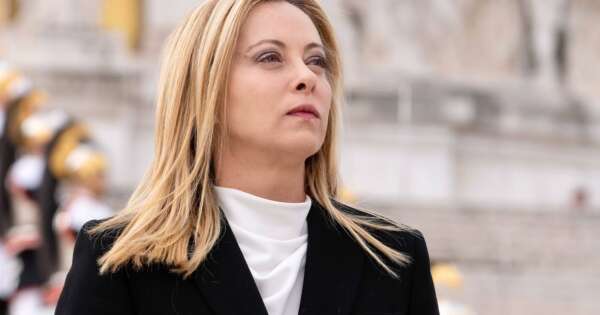The clues are good and must be said right away: In foreign policy, the Meloni government is doing its best (Note that the rest is not quite enough). Last week, which will have a new important step tomorrow in Tunisia, is a good example. While the President of the Republic put plasters on the many goals he scored in recent months with France – hot and complicit Mattarella’s embrace with Macron in front of a silhouette of the Louvre is a powerful image – The Prime Minister moved alone and without sparing herself in the most difficult file: immigration.
After two lines: I went to or received the leaders of the two countries at Palazzo Chigi – Tunisia and Libya – which, due to its internal weakness, favors the exodus of large numbers of immigrants (a drop of +156% in this first part of the year), has taken care of the external borders (the so-called “external dimension”) of Italy and Europe because “migrations must be regulated at departure and not Upon arrival “. At the same time, slow and clumsy Europe had to define another episode of the immigration and asylum plan this week: to conquer Dublin, to ensure redistribution, between commitment and solidarity, and to find a solution to return those who do not have the right to stay. Organizing regular entry channels to cover the strong demand for manpower.
Since 2013, Europe has been trying to make a difference But the cross veto always blocked even exit attempts.
Italy was playing a very sensitive game: However, a right-wing government allied in Europe with Poland, Hungary and other sovereign states of the Visegrad group that has always understood the solution to the problem only by raising the walls. With a double slash, disingenuous perhaps or perhaps not, Meloni had the courage not to follow his European allies, kept his point and extracted an agreement in principle among the majority of the 27 which for the first time appears to be moving in the right. direction. Certainly there is still a long way to go and the times are not immediate to see the turning point proposed by Commission Chair Ursula von der Leyen with her Migration and Asylum Plan.
The next six months, with the Spanish presidency, a country on Europe’s maritime borders experiencing migratory pressures like Italy, will have to define and implement decisions. If we try to observe from above, having formalized that the Mediterranean is the European frontier, Make Tunisia and Libya the main file in Brussels (Sunday Meloni goes to Tunisia with Von der Leyen and Rutte to ensure the money gets through, which the IMF doesn’t), having laid siege to the majority of EU countries to revise asylum and residence rules (and having his historical allies leave him to his fate) are the three best things he’s been. Giorgia Meloni can do it. As if he had listened, at least in part, to the always long and profound interview given to Repubblica by the former Prime Minister and President of the Constitutional Court, Giuliano Amato: “Melloni abandons the anti-EU drift and breaks with Orbán”.
middle text on the Immigration and Refugee Charter Thursday evening approved by the 27 interior ministers (excluding four) two main directors: the Swedish President of the Council, Maria Malmer Steinergaard and the European Commissioner for Home Affairs, Ylva Johansson. Two women, that’s nice to point out. The Italian Minister of the Interior has the advantage of accepting a long series of changes to the initial text. “Firstly – As explained by Matteo Piantedosi Italy has seen resettlement agreements with third countries (which protect civil rights) recognized and has prevented some European countries from getting away with providing funds to first-arrived countries to manage migrants. We will never be a refugee camp on Europe’s southern front.” The adopted text constitutes the common position of the Council of the European Union which will now have to negotiate with the European Parliament to come up with a final text for the two new regulations, one on asylum procedures (April) and the other on asylum and migration management (AMR).
In a word, first of all, a mechanism is created “compulsory solidarity” in which member states have to choose to agree to transfer a share of asylum seekers on their territory (varies for each country depending on GDP and population) who have arrived in countries of first entry, or to instead make a financial contribution of €20,000 for each prospective, non-resettled migrant . The money will not go to countries of first entry but to a common EU fund that will manage agreements and investments with countries of origin and transit of migrants. The second main point is related to the tightening of controls at the external borders.
The states will have first entry Register all incoming illegal immigrants within 24 hoursand they will have it then 12 weeks for the asylum procedure And Another 12 weeks to carry out the return of rejected immigrants. It is not known how Italy will manage to honor these times. This is the black hole of the deal. Together with third and non-EU countries that will take responsibility, paid for, to take charge of migrants. Many Turks south of the Mediterranean. Could do better. You have to start somewhere.

“Reader. Travel maven. Student. Passionate tv junkie. Internet ninja. Twitter advocate. Web nerd. Bacon buff.”




